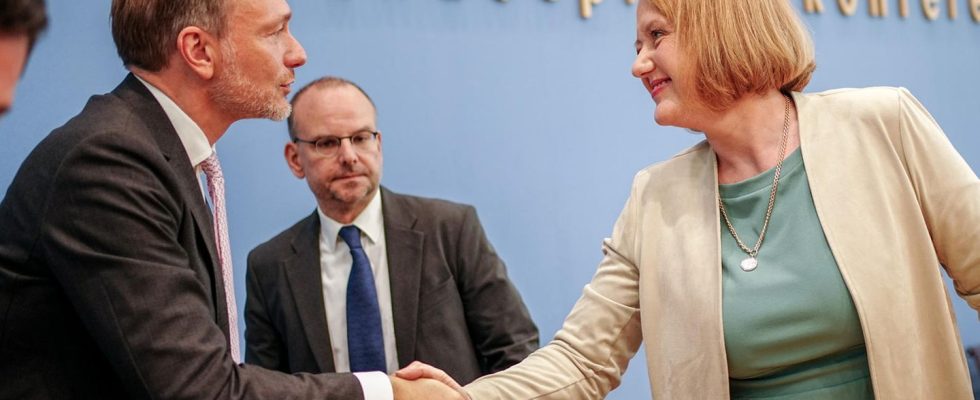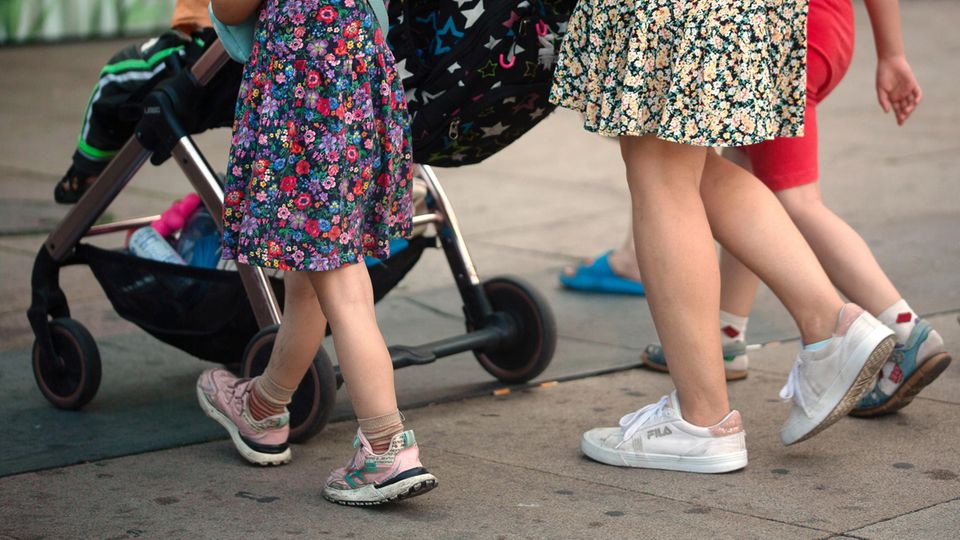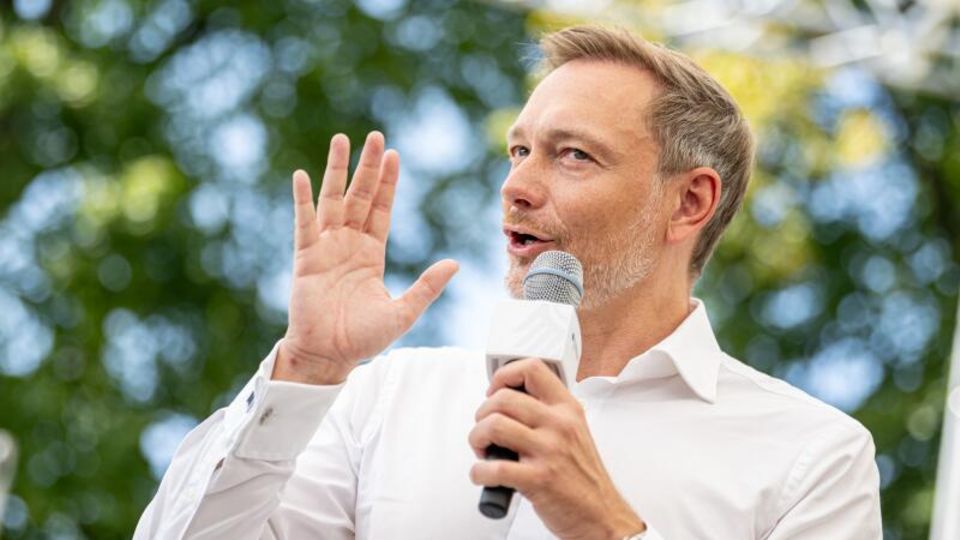Opinion
Basic child security
Don’t rejoice too soon, children!
Apparently they agree on basic child security: Finance Minister Christian Lindner (FDP) and Family Minister Lisa Paus (Greens)
© Kay Nietfeld / DPA
The chancellor forced agreement on basic child security. Now there is calm before the cabinet meeting. But there is nothing to suggest that things will turn out differently from the Heating Act.
“We can be proud of that,” says Lisa Paus, the green family minister. He, too, was “of course satisfied,” says Christian Lindner, the liberal Minister of Finance. And before anyone counts peas to see who has prevailed more, Hubertus Heil, the SPD Labor and Social Affairs Minister, says: “They have Children won!” Amen.
If the chancellor had unexpectedly found time to follow the presentation of the key points agreed that night on the planned basic child protection on the screen, he would certainly have been very satisfied. Scholz literally forced the opponents to come to an agreement at the weekend, just in time for the cabinet meeting in Meseberg, which begins tomorrow. Now it’s quiet.
For the moment. Most likely it will only be a short one.
Basic child security: Key points, nothing more
After all, this much has been certain since tonight: After months of fundamental disputes, in which Lindner and Paus in particular had recently become wedged, the “biggest socio-political reform in years” (Paus) is to be tackled. This is good news for millions of socially disadvantaged people Families. It’s just that they shouldn’t be happy too soon. So far, no more than cornerstones have been decided. There’s still a damn long way to go before a finished law.
Hard to say who will prevail more in the end. Measured against the twelve billion euros that Paus had originally demanded for their basic child security, the now agreed 2.4 billion euros are noticeably close to the two billion that Lindner had last planned as a “note item” in his budget planning for the year 2025.
But measured against the skepticism that had fundamentally affected the finance minister recently, Paus can take credit for having enforced a kind of basic child security at all.
Just how far will that go? They agree on a project that is only supposed to be a joint one. This is already similar to the Building Energy Act. The Greens also understand this as an increase in rates, the Liberals primarily as a bundling of existing services through digitization.
Can this go well?
Paus emphasizes that it’s no secret that she “considers an even bigger step necessary”. Lindner emphasizes: “Look at the text. We improve separate Achievements – that is the text on which we have agreed.” This can very well be understood as an indication of how things will inevitably continue: with a detailed text exegesis, followed by critical analysis and rambling interpretation of the key points.
That brings back unpleasant memories. You can guess where the journey is going because you know it all too well from the recurring rounds on Robert Habeck’s heating law. With each new stage of production there was a new dispute, and only a new debate lasting days, followed by hours of negotiations, brought an at best temporary agreement. Up to the next stage of production, where, to the surprise of everyone, it turned out that not everything had been completely clarified, which is why it was again: Back to the assembly hall. And just as a reminder: This law has still not been passed – the Building Energy Act.
“We don’t do GEG 2.0”
“We don’t do GEG 2.0,” promises the family minister. And Lindner nods, because this time it’s supposed to go through the cabinet without any minutes. But what exactly speaks for it?
The departmental coordination is still pending, the federal states are already mopping, everything is so bureaucratic, the SPD warns of clarifications, the amount will probably never be enough for the Greens. And who knows, a child rebel might step out of the wings.
The chancellor may not like it, but there is much to suggest that the traffic light representatives will apply their tried-and-tested procedure to this project as well. In other words, this was not the last argument about it. It wasn’t even the penultimate.




